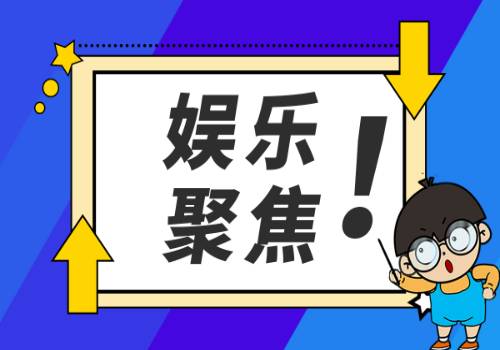Image Source: Visual China
 (资料图)
(资料图)
ChatGPT"s dominance in the AI market has spurred global competition, with companies like Google and Microsoft launching rival products. Google has recently announced its Security AI Workbench at the RSA 2023 conference, while forming a new "Google DeepMind" department in response to the popularity of ChatGPT. In China, tech giants are vying to become "China"s OpenAI," with numerous language models being developed by industry leaders.
Since early March, major Chinese tech companies have entered the battlefield with several former AI industry leaders returning to the forefront of entrepreneurship and innovation. Major model products such as Alibaba"s Tongyi Qianwen, Baidu"s Wenxin Yuyan, SenseTime"s SenseNova, Huawei"s Pan Gu, Kun Lun"s Tian Gong and JD.com"s Yan Xi have been launched. Industry heavyweights such as Lee Kai-fu, former Baidu president Lu Qi, Meituan co-founder Wang Huiwen, Sogou founder Wang Xiaochuan, and former Google scientist Li Zhifei have joined the race of large language models.
Anxiety over the GPT race has reached a boiling point, prompting many to take action against it. Since late November last year, over 20 large language model products have been released by global enterprises and research institutions.
Industry insiders told TMTPost that ChatGPT-like models in China are roughly equivalent to GPT-3 and below in terms of technical capabilities. The primary reasons for the gap between Chinese models and the latest GPT-4 include weaker technology, insufficient computing power, product experience and weaker engineering capabilities.
China’s AI companies are scrambling for the title of "China"s OpenAI." They are in an awkward situation, however.Following the same route of OpenAI may not necessarily result in a product that can compete with those of tech giants, but not following suit risks being eliminated by newcomers. As a result, these companies are creating similar products. It seems that “everyone in China is making their ChatGPT.”
Meanwhile, OpenAI CEO Sam Altman stated that the company is not currently training GPT-5 but will continue to optimize and expand GPT-4"s capabilities.
Attacks on ChatGPTThe AI industry has seen a whirlwind of activity in recent months, with GPT large models like ChatGPT experiencing unprecedented growth. Launched in November, ChatGPT has since amassed 889 million visits, capturing the attention of tech giants, academics, and industrial sectors alike.
As ChatGPT continues to evolve, its API was made available for developers in early March, followed by the release of GPT-4 two weeks later. This new version significantly improved language interaction, analysis, classification, and creative capabilities for both text and images. ChatGPT has become the most widely used multimodal general-purpose large model product globally. Ten days later, plugin testing was introduced, effectively creating ChatGPT’s own app store, while Bing and Office integrated GPT-4 technology to advance Microsoft"s AI capabilities.
The rapid development of ChatGPT has prompted tech giants like Google and Baidu, business magnates like Elon Musk and governments worldwide to challenge it. In response, Chinese tech giants including Alibaba, Huawei, Tencent, Zhihu, SenseTime, Baidu, JD.com, Qihoo 360, and Kun Lun have all entered the large model competition, leading to the most intense month for the Chinese tech scene in a decade.
On April 18, the GPT Industry Alliance was officially established, initiated by the China Mobile Communications Association, China Telecom, China Mobile, China Unicom, and China Broadcast Network.
However, ChatGPT-like models in China are still struggling to keep up. Wang Xiaochuan told TMTPost that it would take Chinese companies at least two years, if not three, to catch up with GPT-4 or GPT-5, an estimate echoed by Zhou Hongyi,the CEO of 360.
The gap between Chinese and American large models is 16 months, with current Chinese models comparable to Google"s FLAN, released in January 2022, according to former Google scientist Li Zhifei. Huaxi Securities identifies two key features of Chinese large models: their business-to-business focus and their lack of public accessibility, resulting in opaque performance levels.
Megvii CEO Yin Qi believes the next 12 months will be critical for large language model development, with companies needing to reach GPT-3.5 performance and commercialize their technology. He warns of potential AI industry "bubbles" emerging in the coming months.
As AI continues to transform work and human life, governments are increasingly concerned with managing risks, initiating a "siege" against GPT models:
Wang Yuwei, a partner at Guantao Law Firm, acknowledges the challenge of regulating generative AI, as existing legislation struggles to address emerging issues. Striking a balance between effective regulation and industry growth is crucial, as comprehensive regulation on AI is unrealistic at this stage.
Key regulatory disputes surrounding generative AI include intellectual property, data security, personal information protection, and cross-border data issues. Microsoft and Amazon have cautioned employees about sharing sensitive information with ChatGPT, fearing it could train future language models.
After addressing regulatory concerns, Italian authorities lifted temporary restrictions on OpenAI"s handling of user data, allowing the company to resume operations in Italy.
The hostility against ChatGPT stems from three main factors: GPT threatens the tech secret and market shares of major tech companies; GPT raises ethical and moral concerns, prompting public scrutiny; and internal conflicts of interest within companies lead to collective opposition against GPT.
Computing Power and Commercialization Present ChallengesChina, with 26% of the world"s computing power distribution, ranks second globally, just behind the US, according to China"s Ministry of Industry and Information Technology. The rise of ChatGPT has intensified demand for server-based AI computing power, creating a computational bottleneck for large language models.
OpenAI temporarily suspended ChatGPT"s paid registration services in April due to "excessive demand." Market speculation about GPU chip shortages and sustainability concerns emerged. Baidu Wenxin experienced similar issues. China"s AI servers have a market size of 40-50 billion yuan, with an expected growth rate of over 30% this year.
Nvidia estimated that ChatGPT"s hardware costs exceed US$800 million. Yin Qi suggested that building a GPT large model requires at least 10,000 Nvidia A100 GPU chips and 2 billion yuan in hardware investment. Currently, only 40,000 A100 chips are available in China for large model training.
Major cloud computing providers, including Amazon, Microsoft, Google, and Oracle, are reportedly restricting customer access to cloud servers due to an undersupply of computing chips. After GPT-4"s release, the market predicts a 100-fold increase in chip and computational power demand, leading to Nvidia shares soaring over 86% since the beginning of the year.
The US Department of Commerce"s export control policy introduced in October 2022 restricted the export of Nvidia A100 and H100 chips to China, impacting large-scale model development. The performance gap between China"s available A800 chips and Nvidia"s A100 and H100 chips ranges from 5% to over 60%. Tech giants like Alibaba, Tencent, and ByteDance are among the few possessing Nvidia A100/A800 chips in China, while most companies rely on cloud computing or rented GPU chips.
Yin Qi told TMTPost that chip shortages pose a significant hurdle to large AI model development in China. Baidu is reportedly purchasing large quantities of Nvidia A100/A800 chips and server cards at a premium for its Wenxin project. Chinese spot market prices for A100 chips have risen from 700,000 yuan to 900,000 yuan, while the average price of Nvidia"s A800 chips in China has more than doubled due to high demand.
Both Chinese and international large model manufacturers have increased their procurement budgets for Nvidia GPUs, driving demand even higher. Wang Xiaochuan believes the performance gap between available chips in China won"t become a bottleneck, expressing confidence in future Chinese chip technology breakthroughs. However, Tang Jie, a professor at Tsinghua University, argues that the computing power gap between Chinese and foreign large model manufacturers will widen as training parameters expand, making rapid chip development crucial to narrowing the distance.
An industry insider told TMTPost that Chinese GPU-type chips struggle to replace Nvidia"s A100/H100, making it difficult for Chinese AI chips to run large models. Yanfan Yang, a co-founder of SenseTime, highlighted two challenges for Chinese AI chips: poor coupling between chips and frameworks, and a lack of understanding of AI scenarios.
Commercialization is another challenge for large GPT models. OpenAI"s ChatGPT Plus subscription plan, priced at US$20 per month, could generate over US$20 billion in annual revenue with 100 million users. Meanwhile, Microsoft integrates GPT technology into search advertising, cloud services, Bing, and GPT-4-powered Copilot in Office and email services, attracting more paying users.
Applications like search engines, intelligent customer service, and content creation are expected to be commercialized first in industries such as media, advertising, literature, education, finance, and intelligent vehicles. E-commerce companies like Shopify and Rebate Technologies have already used ChatGPT to boost operational efficiency.
Kai-Fu Lee, the CEO of Sinovation Ventures, said that AI 2.0, led by ChatGPT, will accelerate commercial potential in e-commerce, film, search engines, metaverse, finance, and healthcare, entering a period of explosive growth in productivity-enhancing applications and social productivity. A report predicts that by 2032, the AIGC global market size will exceed US$200 billion.
Wang Kai, a senior analyst at Morningstar Asia, said it"s too early to discuss potential revenue or profit from ChatGPT-like products for Chinese companies, as they are still exploring application scenarios and commercialization strategies. Lu Yanxia, IDC China Research Director, noted that relying solely on large language models will not provide a sustained advantage, with many AI models potentially becoming irrelevant in the long run.
Yanfan Yang emphasized that creating a large AI model requires expertise in hardware engineering, algorithms, and data. The industry"s insufficient understanding of AI remains a key issue. Wang Xiaochuan believes that each tech giant will introduce a model, but fewer than five large models from startups participating in this round will receive a "passage ticket."
Humans Remain IrreplaceableMicrosoft recently announced the open-source release of DeepSpeed Chat, enabling users to train large language models like ChatGPT efficiently. This development has accelerated the arrival of an era where every company could have their own personalized ChatGPT model.
Zhou Hongyi explained to TMTPost that the widespread availability of open-source GPT technology means there is no issue with redundant development. Companies can choose between public or dedicated models, depending on their needs for confidentiality and exclusive requirements.
However, the actual commercial demand for these large models and potential technological risks remain uncertain. ChatGPT has not only brought AI to its "iPhone moment" but also opened a "Pandora"s box" of AI algorithms. With the help of Artificial General Intelligence, many sectors of society will face the reshaping of productivity and production relations.
A Goldman Sachs report estimates that generative AI could automate 18% of global jobs, primarily impacting white-collar positions in developed countries. This has led industry and academic figures, including Elon Musk, to question the ethical implications of AI replacing human jobs.
Despite some concerns, many in the AI industry, including Baidu CTO Wang Haifeng and SenseTime CEO Xu Li, view AI as an auxiliary tool. Musk, on the other hand, considers unrestricted AI development as dangerous and potentially more harmful than nuclear warheads.
As AI technology continues to advance and become more accessible, business leaders, tech giants, and governments worldwide are increasingly focused on its commercialization. With the market shifting from excitement to a sober focus on commercialization, the large model war in the AI field seems likely to persist.
关键词:
-

快资讯丨Besieging ChatGPT | TiPost In-Depth
China’sAIcompaniesarescramblingforthetitleof "China sOpenAI "
-

环球快播:伯克希尔哈撒韦A第一季度净利润355亿美元
【大河财立方消息】北京时间5月6日晚间消息,伯克希尔·哈撒韦发布2023年第一季度业绩报告。,第一季度实现
-

雅创电子:公司自研IC业务仍在快速增长 |世界聚看点
南方财经5月6日电,雅创电子在业绩说明会上表示,公司自研IC业务仍在快速增长,库存维持在正常水平。双模蓝
-

盗贼的灵魂3无敌版_盗贼的灵魂2中文版
1、在挑战每个副本关卡前,游戏都会显示挑战所需战斗实力以及自己队伍的整体战斗力。2、若与游戏要求的战斗
-

当前焦点!南阳老界岭:雨后惊现云海奇观
春山秀丽,草木葱茏,5月4日,雨后的南阳老界岭,再次如约上演了一场云海大片。时而轻纱幔帐,为漫山的青翠
-

天奇股份(002009.SZ):三元电池回收再生利用业务的毛利率水平基本维持12%-15%
格隆汇5月6日丨天奇股份(002009)(002009 SZ)于2023年5月5日15:00-17:00召开业绩说明会,就“公司现在磷酸铁
-

全球视讯!热心保安捡到36万存单 民警多方查找物归原主
热心保安捡到36万存单民警多方查找物归原主---景区保安符大爷在园内巡查时,捡到一钱包,准备上交至派出所
-

每日短讯:TrendForce:电视面板价格在5月份仍维持上涨态势,预计全尺寸会回升至现金成本以上
App5月6日消息,研调机构集邦(TrendForce)指出,目前电视面板的备货动能仍在,加上面板厂持续动态调控稼动
-

同样的话再说一遍?去年12月KD曾发推:25中20 布克真tm离谱
直播吧5月6日讯NBA季后赛次轮G3,太阳主场121-114战胜掘金,将总比分扳成1-2。此役,布克出战41分37秒,25
-

全球今头条!广西路建集团大风江大桥斩获“中国钢结构金奖”
近日,第十五届“中国钢结构金奖”(第二批)获奖项目名单正式公布,由广西北部湾投资集团有限公司直属企业
-

广东107岁老人头上长犄角?医生反复提醒!
5月5日,广东韶关一位百岁老人头上长犄角的视频引网友关注,相关话题登上同城热搜第一位。拍摄者介绍,老人
-

尼龙扎带规格型号300_尼龙扎带规格型号
1、尼龙扎带规格是指尼龙扎带的宽度和长度数值标示系列数据。2、通常采用宽度*长度的标示方法。3、整个尼龙
-

汉高集团一季度销售额同比增长6.6%至56亿欧元
新京报贝壳财经讯(记者于梦儿)5月5日,汉高集团发布2023年第一季度财报。期内,该集团销售额达56亿欧元,
-

论最年轻的封号斗罗,唐昊父子必然上榜,但中间还隔了低调的她_信息
在大陆的记录里,有那么一项就是最年轻的封号斗罗,可以说有记忆以来风头正盛的估计是唐家这一代,毕竟大
-

诺兰新片《奥本海默》新海报、剧照 7.21北美上映!
诺兰导演新片《奥本海默》将于今年7月21日北美上映,片方今日曝光全新海报和剧照,希里安墨菲扮演的奥本
-

全球热点!兔年金条价格今天多少一克(2023年05月06日)
金投网提供兔年金条价格今天多少一克,兔年金条价格最新消息(2023年05月06日)
-

ce认证是什么公司发的(ce认证是什么认证) 全球短讯
1、一、CE认证,为各国产品在欧洲市场进行贸易提供了统一的技术规范,简化了贸易程序贸易区必须进行CE认证
-

吸客能力强大,消费业绩飘红 长沙“五一商圈”为何强势出圈
“五一”假期累计人流量550多万人次,吸客能力强大,消费业绩飘红——长沙“五一商圈”为何强势出圈华声在
-

当前讯息:今年以来全国快递业务量突破400亿件
今年以来全国快递业务量突破400亿件,快递,国家邮政局,业务量,快递包裹,快递业
-

全球观点:国羽全线出击挣奥运积分!印尼赛报名名单出炉,翁泓阳第一替补
由于是超级1000赛,且又是巴黎奥运积分赛,所以国羽全线出击,派出了石宇奇、李诗沣、陈雨菲、刘雨辰 欧烜


